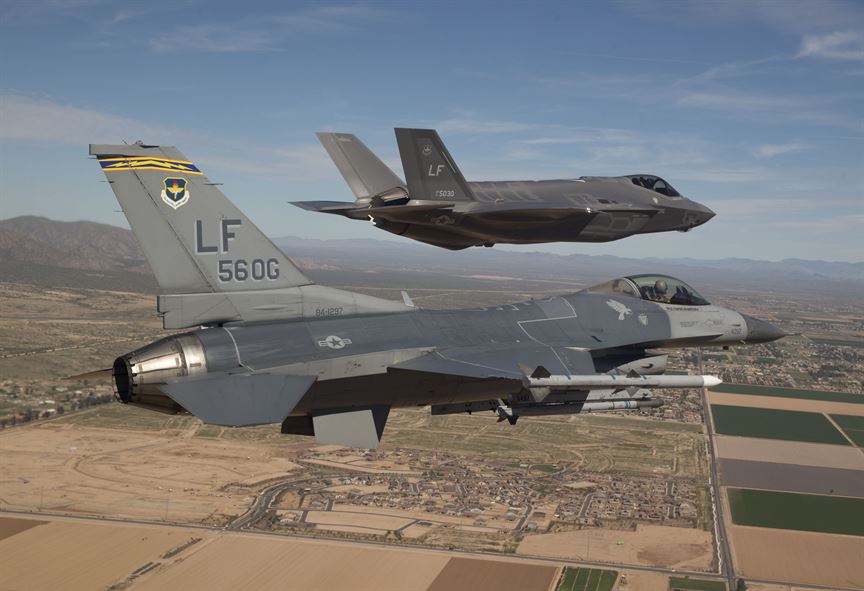The Lockheed Martin F-35 Lightning II fleet recently surpassed 15,000 flight hours, marking a major milestone for the program.
“Flying 15,000 hours itself demonstrates that the program is maturing, but what I think is even more impressive is the fact that operational F-35s accounted for more than half of those flight hours,” said J.D. McFarlan, Lockheed Martin’s vice president for F-35 Test and Verification.
“While the fleet continues to train, we are actively flight testing the software and mission systems that will enable the Marine Corps to declare Initial Operational Capability (IOC) next year as planned.”
As of April 7, operational F-35s had flown 8,050 hours while System Development and Demonstration aircraft had accumulated 7,123 flight hours. In 2014, F-35A test aircraft have flown 328 hours; F-35B test aircraft have accumulated 191 hours; and F-35C test aircraft have flown 91 hours.
In comparison, operational F-35As have flown 963 hours, while their F-35B and F-35C counterparts have accumulated 1,012 and 98 hours respectively for the year.
“Following successful AIM-120 AMRAAM Weapons Delivery Accuracy (WDA) tests in February and March, we’re looking forward to executing additional WDAs in the 2nd quarter,” said McFarlan.
“In another clear sign of program maturation, reliability metrics are trending upward as the operations tempo picks up – recently 60 F-35 sorties were flown in one day.”
The U.S. Marine Corps plans to declare IOC in 2015, while the U.S. Air Force and Navy intend to declare IOC in 2016 and 2018, respectively.
The F-35 Lightning II, a 5th generation fighter, combines advanced low observable stealth technology with fighter speed and agility, fully fused sensor information, network-enabled operations and advanced sustainment.
Three distinct variants of the F-35 will replace the A-10 and F-16 for the U.S. Air Force, the F/A-18 for the U.S. Navy, the F/A-18 and AV-8B Harrier for the U.S. Marine Corps, and a variety of fighters for at least 10 other countries.









